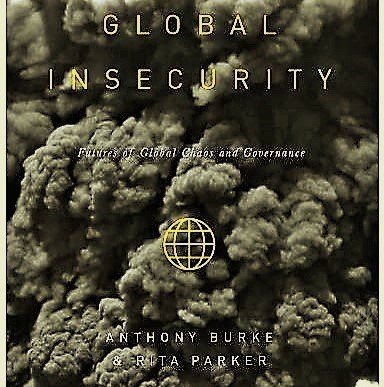Insecurity and Governance in an Age of Transition
 Joseph Camilleri, 'Insecurity and Governance in an Age of Transition', in Anthony Burke and Rita Parker (eds), Global Insecurity: Futures of Global Chaos and Governance, London: Palgrave Macmillan, 2017, pp. 23-41.
Joseph Camilleri, 'Insecurity and Governance in an Age of Transition', in Anthony Burke and Rita Parker (eds), Global Insecurity: Futures of Global Chaos and Governance, London: Palgrave Macmillan, 2017, pp. 23-41.
Chapters in Book
EXCERPTS FROM THE CHAPTER:
Many of the threats to security are physically global in that they have global reach, whether by virtue of the destructiveness of weapon systems (e.g. nuclear arsenals), the ubiquity of the threat (e.g. climate change), or the speed with which the threat is propagated (e.g. the AIDS pandemic). But the sense of insecurity is globalised psychologically as well as physically, in part by virtue of the near instantaneous speed with which information and images are transmitted across borders. The shrinking of time and space makes possible a near universal consciousness of the scale and interconnectedness of the multiple threats to security. . .
The kind of integrated policy response proposed here by definition requires a wholeof-governance and a whole-of-society framework within which the national state retains a central role, but one that rests on notions of inclusion rather than exclusion. . .
A whole-of-governance approach begins with the state putting its own house in order. This means sustaining a political environment conducive to collaborative interaction between the executive, legislative and judicial arms of national government. Within the executive it calls for civilian rule and effective coordination between ministries, departments and other public bodies entrusted with security related responsibilities – not just those covering foreign affairs, defence and homeland security, but also justice, health, environment, and immigration to name a few. Secondly, a whole-of-governance response to insecurity is premised on the idea that the national, provincial and municipal tiers of government have developed appropriate mechanisms for collaboration in both policy formulation and policy implementation.
A whole-of-society response to contemporary insecurities offers two distinct benefits. First, it enables a great many constituencies to give expression to their experience of insecurity. . . Secondly, and more importantly, it expands the pool of knowledge and insights that decision makers can call upon when addressing the contemporary security agenda, whether in relation to energy security and climate change, ‘border protection’ and the treatment of refugees and asylum seekers, nuclear proliferation, terrorism, human rights abuses or inter-ethnic tensions. Simply put, a whole-of-society approach can help create a political environment conducive to a more reflective and sustainable security dialogue.
You can read the chapter here
